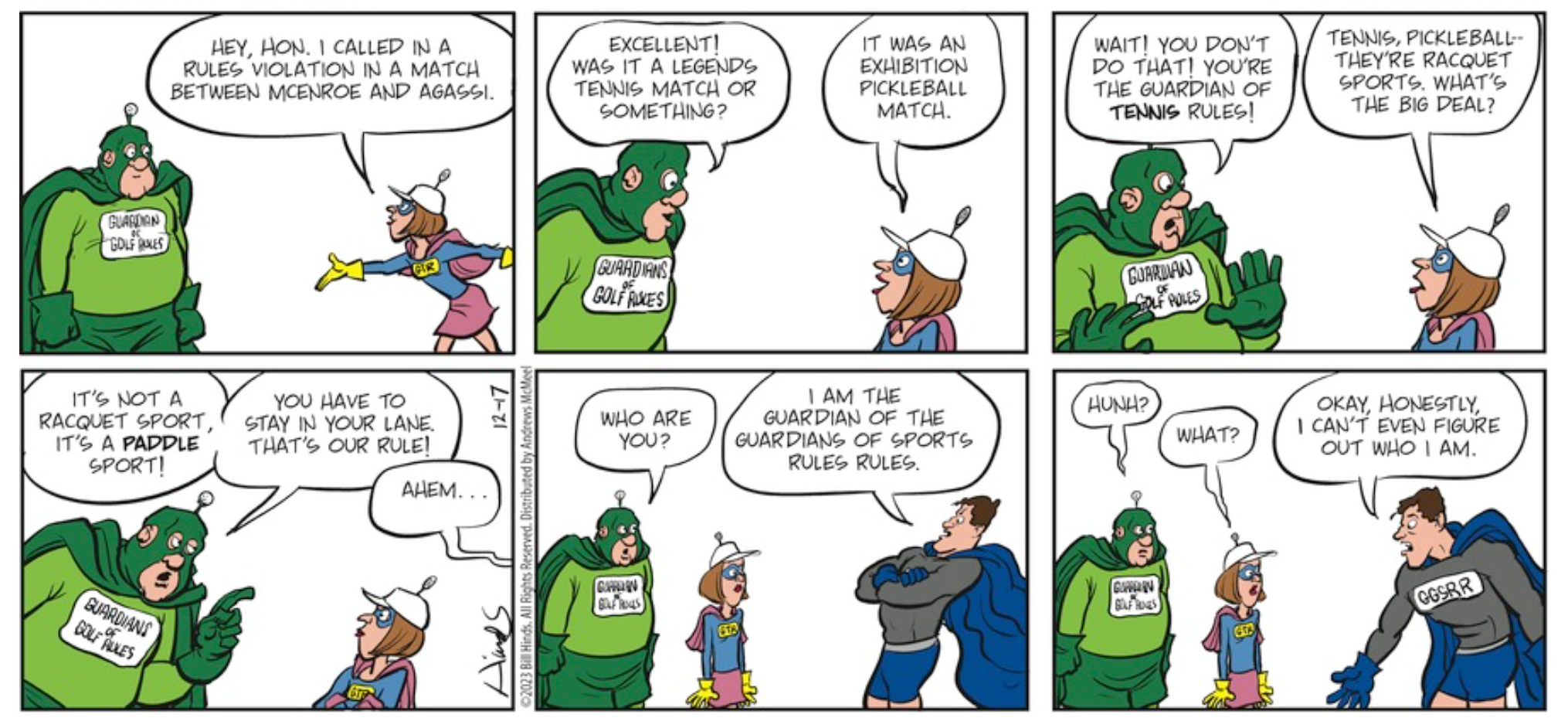Decryption of a difficult script
Photograph accompanying a New York Times article, with the following caption: "Merle Goldman explaining the Chinese characters for the word China":

(source)
Read the rest of this entry »
Intergenerational cycles of peeving?
In a recent article in Psychology Today, Nick Morgan proposes a new theory about the psychodynamics of prescriptivist peeving ("Why Bad Grammar Activates Our Fight-or-Flight Response", 12/14/2023):
Does grammar matter? And did you have a teacher in your youth who insisted on drumming the rules of good grammar into you—and was that teacher on the stern and grumpy side of the instructional continuum?
My anecdotal research into these questions over the years has gradually built a composite picture of a somewhat terrifying authority figure, either male or female, who insisted on good grammar as the essential basis of a sound education. They managed to impart enough of it to you so that you cringe when someone uses "among" and "between" interchangeably—or flubs the distinction between 'that" and "which" because of a fatal lack of understanding of the difference between an independent and dependent clause.
Now, a study reveals that your response to those solecisms (and your bad-tempered teacher's response) is indeed physiological: The grammar of language affects us viscerally.
When we hear bad grammar, our pupils dilate, and our heart rate increases, indicating a fight-or-flight response.
Read the rest of this entry »
"Sheep-dog", spindle whorls, and meditation
Some people call it a "woolly dog", but that's more a description of what it's like. That's not its name. And it's not a "sheepdog" or "sheep dog", like a border collie.
Before I go any further into the nomenclature of canines, I want to recognize that they're all the same species: Canis lupus familiaris. No matter what their size, shape, coloration, or behavior, from the chihuahua to the great dane, they are all the same species: Canis lupus familiaris. It's only their breed that is different. That is to say, they are bred to enhance different characteristics and to emphasize diverse traits.
Conversely, there are thousands of different species of birds. It has always puzzled me why there is only one species of dog, but thousands of species of birds (upwards of 10,000), but I'm sure that somebody on Language Log will have the precise answer. Is it that dogs are selectively bred by humans, whereas birds do their own thing?
The dog I'm talking about here — although extinct now — was raised for thousands of years for its wool! It was carefully kept apart from other types of dogs to enhance its wool-bearing capability. Like a sheep. That's why I like to call it a sheep-dog, albeit somewhat jocularly. It's a dog, but it has the wool producing characteristics of a sheep.
Read the rest of this entry »
Locative variation
One of the hard parts of learning a new language is figuring out what preposition to use when (or what postposition, or what case, or etc.). This can be tricky even for simple locative expressions:
I live in France. J'habite en France. I live in Paris J'habite à Paris. I live in Japan. J'habite au Japon. I live in the forest. J'habite dans la forêt.
…and so on. Except that you could also say "J'habite sur Paris", meaning something like "I live in the Paris area".
Read the rest of this entry »
Sumerian and Sinitic
This amounts to an afterword to this post: "Hype over AI and Classical Chinese / Literary Sinitic" (11/9/23)
Four decades ago, when I was trying to determine what type of language Sinitic was (synthetic, analytic, inflected, isolating, agglutinative, fusional, polysynthetic, etc.), from a survey of all the world's languages that I could get a grasp of, I came across Sumerian, which seemed to have many features that were similar to Sinitic, so I decided to look into that a bit more deeply.
Fortunately, I discovered this excellent book, which had just come out around that time:
Marie-Louise Thomsen, The Sumerian Language: An Introduction to Its History and Grammatical Structure (Mesopotamia Copenhagen Studies in Assyriology, Volume 10) (Akademisk Forlag, 1984).
In it, she said, "…the study of the Sumerian language is not easy: the meaning of many words and grammatical elements is far from evident, the writing is defective…". She also declared, "The orthography of the Old Sumerian texts is rather defective."
Read the rest of this entry »
Le Nouchi
Elian Peltier, "How Africans Are Changing French — One Joke, Rap and Book at a Time", NYT 12/12/2023:
French, by most estimates the world’s fifth most spoken language, is changing — perhaps not in the gilded hallways of the institution in Paris that publishes its official dictionary, but on a rooftop in Abidjan, the largest city in Ivory Coast.
There one afternoon, a 19-year-old rapper who goes by the stage name “Marla” rehearsed her upcoming show, surrounded by friends and empty soda bottles. Her words were mostly French, but the Ivorian slang and English words that she mixed in made a new language.
To speak only French, “c’est zogo” — “it’s uncool,” said Marla, whose real name is Mariam Dosso, combining a French word with Ivorian slang. But playing with words and languages, she said, is “choco,” an abbreviation for chocolate meaning “sweet” or “stylish.”
A growing number of words and expressions from Africa are now infusing the French language, spurred by booming populations of young people in West and Central Africa.
Read the rest of this entry »
Where have all the peevers gone?
Back in the fall of 2022, I asked "What happened to all the, like, prescriptivists?". I still don't have any actual counts, but I continue to find fewer instances of prescriptivist peeving in my various media feeds and foraging.
Read the rest of this entry »
AI percolates down through the legal system
There has been considerable concern that AI (e.g., ChatGPT and other LLM-enabled devices) would unduly influence sensitive sectors of society (e.g., the law, health care, education, etc.). Some of the anti-AI rhetoric has bordered on alarmist (I will write a post about that within a few days.
For now, here's an example of how humans will fight back.
AI in Court
5th Circuit Seeks Comment on Proposed AI Rule
Lawyers will have to certify they did not use AI, or verify any work produced by AI.
Josh Blackman, The Volokh Conspiracy (11/29/23)
—–
Read the rest of this entry »
John McWhorter unconfuses Bill Gates
Sometime LLOG contributor John McWhorter is the featured guest on Episode 4 of Bill Gates' podcast Unconfuse Me.
The trailer:
Read the rest of this entry »
Abbott's Abode, part 2
[This is a guest post by Michael Bates. It is about the place in Pakistan where Osama Bin Laden was killed on May 2, 2011 and where, a scant five months earlier, on January 25, 2011, Indonesian terrorist Umar Patek was arrested.]
Read the rest of this entry »
Franglais freaks Quebec
Language remains a hot button across Canada — Vipal Monga, Quebec’s ‘Language Police’ Take Aim at Sneaky English Slang, WSJ (12/13/23):
Authorities fret over ‘Franglais,’ the creep of words like ‘cool’ or ‘email’ into French discourse; even elevator music is scrutinized.
Read the rest of this entry »

